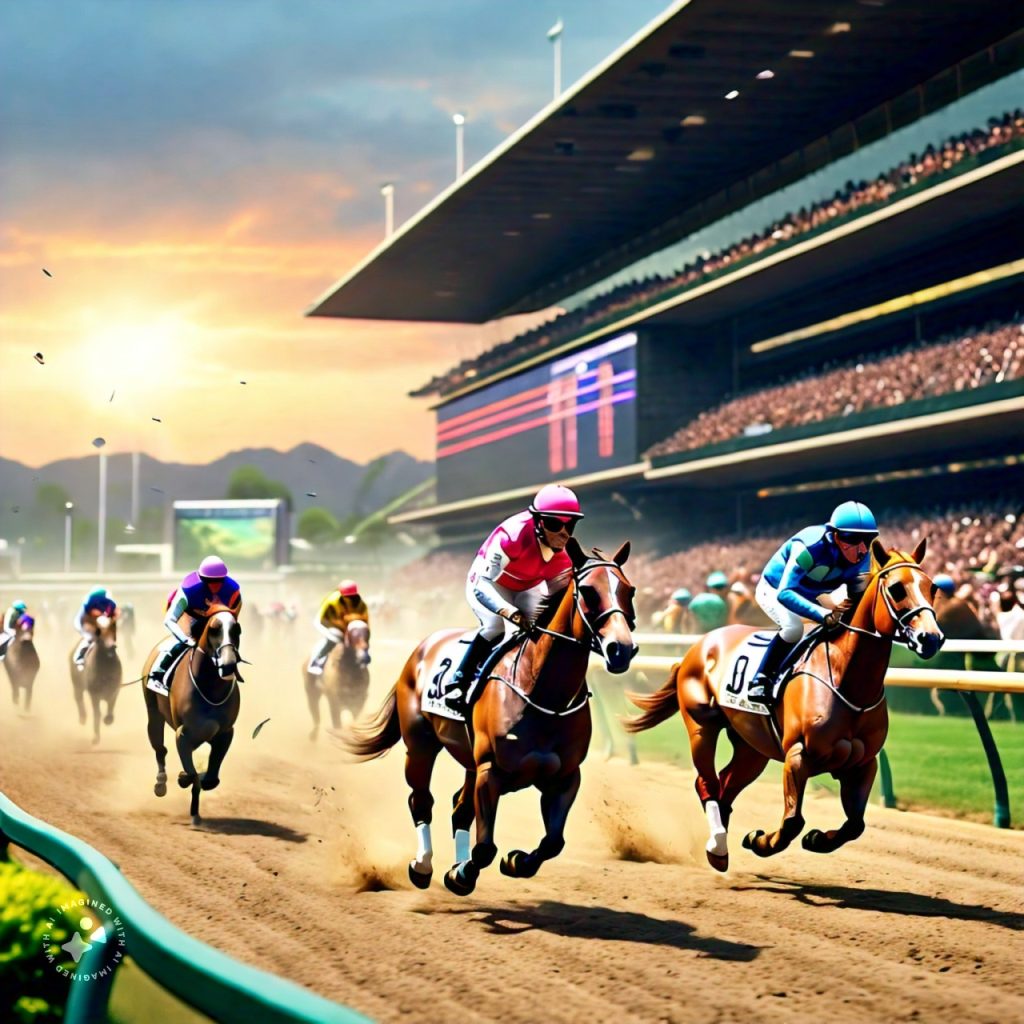Horse racing is a thrilling spectacle that goes beyond the physical prowess of jockeys and horses. The mental game plays a crucial role, influencing performance and decision-making at every stage of the race. This article delves into the fascinating world of psychology in horse racing, exploring the mental strategies employed by jockeys, trainers, and even the horses themselves.
The Mental Fortitude of Jockeys
Jockeys are under immense pressure to perform at their peak. Here’s a glimpse into their mental strategies:
- Focus and Concentration: Maintaining razor-sharp focus throughout the race, filtering out distractions, and anticipating potential scenarios are vital skills.
- Nerve Management: Dealing with pre-race jitters and managing emotions during intense races separates successful jockeys from the rest.
- Strategic Thinking: Quickly assessing race dynamics, making split-second decisions based on horse behavior and competitor strategies, is crucial.
Training the Mind: The Role of Trainers
Trainers play a significant role in preparing horses mentally for races:
- Understanding Horse Psychology: Trainers need to understand individual horse personalities, fears, and motivations to create effective training programs.
- Building Confidence: Confidence-building exercises and positive reinforcement are essential for horses to perform at their best mentally.
- Mental Rehearsal: Simulating race environments during training sessions can help horses prepare for the stress and excitement of competition.
The Mental Aspect of Horses
While a horse’s physical capabilities are crucial, their mental state also plays a part:
- Learning and Memory: Horses have impressive learning abilities. Trainers leverage this to teach horses racing tactics and course familiarity.
- Understanding Emotions: Horses exhibit emotions like fear, excitement, and anticipation. Recognizing these emotions helps trainers tailor their approach.
- Maintaining Composure: A calm and focused horse is more likely to perform well. Trainers strive to create a stress-free racing environment for their horses.
The Psychological Impact of Crowds and Atmosphere
The racecourse atmosphere can significantly impact horse racing psychology:
- Pre-Race Jitters: The noise and excitement of the crowd can affect both horses and jockeys, requiring mental preparation techniques.
- Responding to Pressure: Horses need to be trained to handle the pressure of large crowds and maintain focus on the race.
- Channel Positive Energy: Experienced jockeys can leverage crowd energy to their advantage, motivating themselves and their mounts.
Conclusion
Horse racing is not just a physical competition; it’s a complex interplay of physical prowess and mental fortitude. By understanding the psychological factors at play, from the jockey’s nerves to the horse’s emotions, we gain a deeper appreciation for the challenges and triumphs within this exciting sport.
